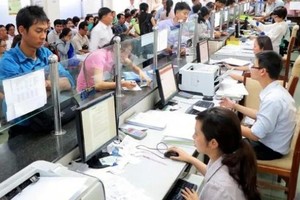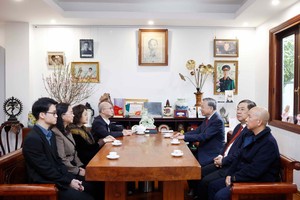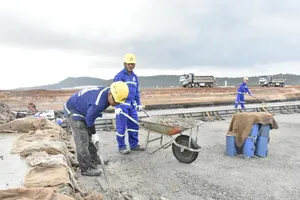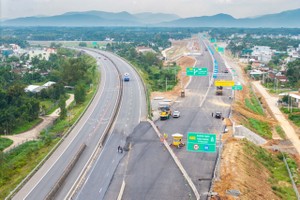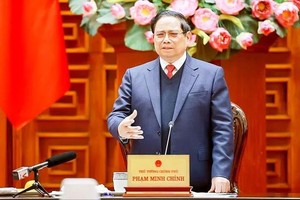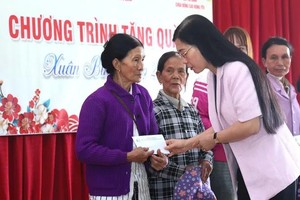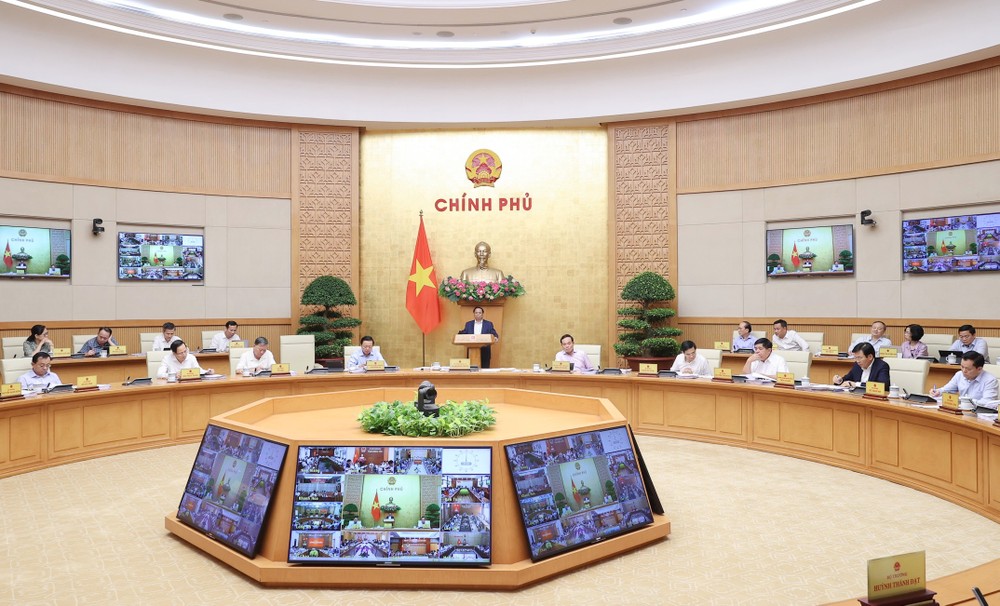
Prime Minister Pham Minh Chinh chaired the Government’s regular meeting and a teleconference between the Government and the 63 localities on April 3 to discuss the socio-economic situation in March and the first quarter and set tasks for Q2.
Opening the event, Chinh said thanks to strong action by the entire political system, the socio-economic situation continued to improve, with results last month higher than January and February and the Q1 performance faring better than the same period last year in most areas.
He elaborated that the macro-economy stayed stable, inflation under control, economic growth boosted, and major balances of the economy ensured. Besides, defence - security was consolidated, political stability and social order - safety guaranteed, and people’s material and spiritual life quality improved. Bright spots were also seen in culture, education, and social security, and the fight against corruption promoted. Meanwhile, external relations were fostered and had reaped encouraging outcomes.
However, there remain certain challenges, the Government leader said, asking officials to assess the socio-economic situation so far this year and devise tasks and implementation measures for April, Q2, and the coming time.
The Ministry of Planning and Investment (MPI) reported that the gross domestic product (GDP) grew 5.66 percent year on year during January - March, the fastest Q1 pace since 2020. Some localities posted high economic growth during the period, including Bac Giang (14.2 percent), Thanh Hoa (13.2 percent), Tra Vinh (13.9 percent), Khanh Hoa (12.4 percent), Quang Ninh (8.9 percent), Ho Chi Minh City (6.54 percent), Hai Phong (9.3 percent), and Hanoi (5.5 percent).
The consumer price index (CPI) rose 3.97 percent from a year earlier in March and 3.77 percent in Q1. Interest rates were kept low, domestic demand for foreign currencies met to aid growth, production and export, and the banking system’s safety guaranteed.
In Q1, the State budget revenue was equivalent to 31.7 percent of this year’s target and increased 9.8 percent year on year. Foreign trade, exports, and imports respectively went up 15.5 percent, 17 percent, and 13.9 percent with a trade surplus of some US$8.08 billion. Total investment in society rose 5.2 percent from the same period last year, when it expanded 3.7 percent, statistics show.
While an approximated US$6.2 billion in foreign direct investment (FDI) was registered during the first three months, up 13.4 percent year on year, the disbursement increased 7.1 percent to US$4.6 billion. Many large enterprises have pledged to invest in electronics, chip, semiconductor, and renewable energy industries.
Public investment disbursement reached 13.67 percent of this year’s plan, compared to the 10.35 percent recorded during the same period of 2023, thus channeling a large sum of capital into the economy to support growth and development, the MPI noted.
However, a number of difficulties and challenges still exist. Inflationary and foreign exchange pressure remains an issue needing attention. The financial and monetary markets as well as the banking system still face latent risks. The shortage of filling materials is hampering many key transport projects in the southern region, according to the MPI.






